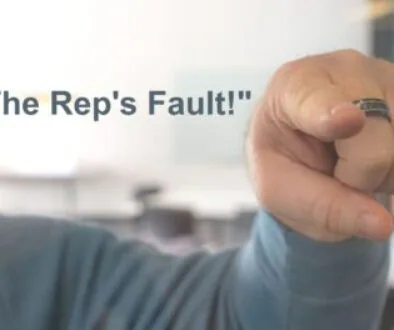The Best Gift to Give a Customer, Distributor or Salesperson is One That Helps Them to Succeed
I am glad to say that reps who work in most segments of the medical products industry can no longer lavish gifts on their customers. Up until a few years ago, a gift certificate, a bottle of wine, or even tickets to a sporting event were a way of saying thank you for the customer’s business during the year, and hopefully a way to obligate them for continued business in the coming year. The rules prohibiting gift-giving are good ones because none of the gifts that I described did anything for the customer’s business and the gifts were often quickly forgotten. What a waste!
There are still businesspeople and salespeople in the medical industry who don’t get it. Recently I had the opportunity to look at an acquaintance’s business who sells medical software. In an effort to endear himself to his distributor partners who sell his product, Ian spent several thousand dollars to send each of them a beautiful wooden desktop box. Oh yes, he also put a pen with his company’s name on it in each wooden box before shipping it. I asked Ian what he expected to get in return for the gift.
Ian said that his distributors represented many different products. Ian wanted them to realize that his company offered a “classy” product and by sending a “classy” gift they would think of his company and sell his product.
Really?
I asked Ian some quick questions to try and get him to realize the futility of his intentions. The wooden boxes were going to distributors, not the salespeople who sold his software. The salespeople got bupkis…nada! The people who need motivation to sell weren’t even considered. And had they been, a wooden desk box containing a cheap pen would have done nothing to inspire them to sell Ian’s product.
What would?
Salespeople take the path of least resistance. They will sell the product that the customer is most likely to buy (often described in the sales world as the low-hanging fruit) or they sell the product that they are most comfortable selling. Wooden desktop boxes don’t enter into the equation.
What would have been a better investment? Anything that a distributor could use to increase his sales and thus increase Ian’s sales. I suggested a virtual training program that would make the salespeople 20 times more likely to sell his product because they would know it better and feel more comfortable with it than any other product that they sold. And they would close more sales.
Ian wanted to know what the ROI would be if he gave his distributors training. I explained that it would be a multiple of what he invested. He wanted an exact number. I couldn’t give him an exact number.
Ian decided to go with the wooden box. What do you think the exact ROI on it will be?
The message to you whether you’re a distributor, a salesperson, or the VP of sales is to provide your salespeople and your customers with something that will improve the condition of their business, not the look of their desks. Salespeople and medical professionals don’t want wooden boxes. They want to sustain and increase their profit margins so they can sleep better at night. If you can’t specifically and tangibly explain how any trinket or program you’re considering will do that, save your money. A nice gift is nice, but most are unlikely to impact either a customer’s or your bottom line.


